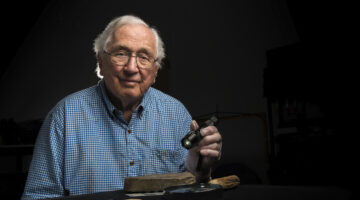Global Quarantine won’t defer Climate Change – K. Miner
As the news reports a decrease in carbon emissions and atmospheric pollution globally, what will the long term impacts be? CCI Research Assistant Professor Kimberley Miner joins Newsy to discuss why the Coronavirus won’t be a quick fix to climate change problems. https://www.newsy.com/stories/experts-global-quarantine-won-t-defer-climate-change/
Read more

